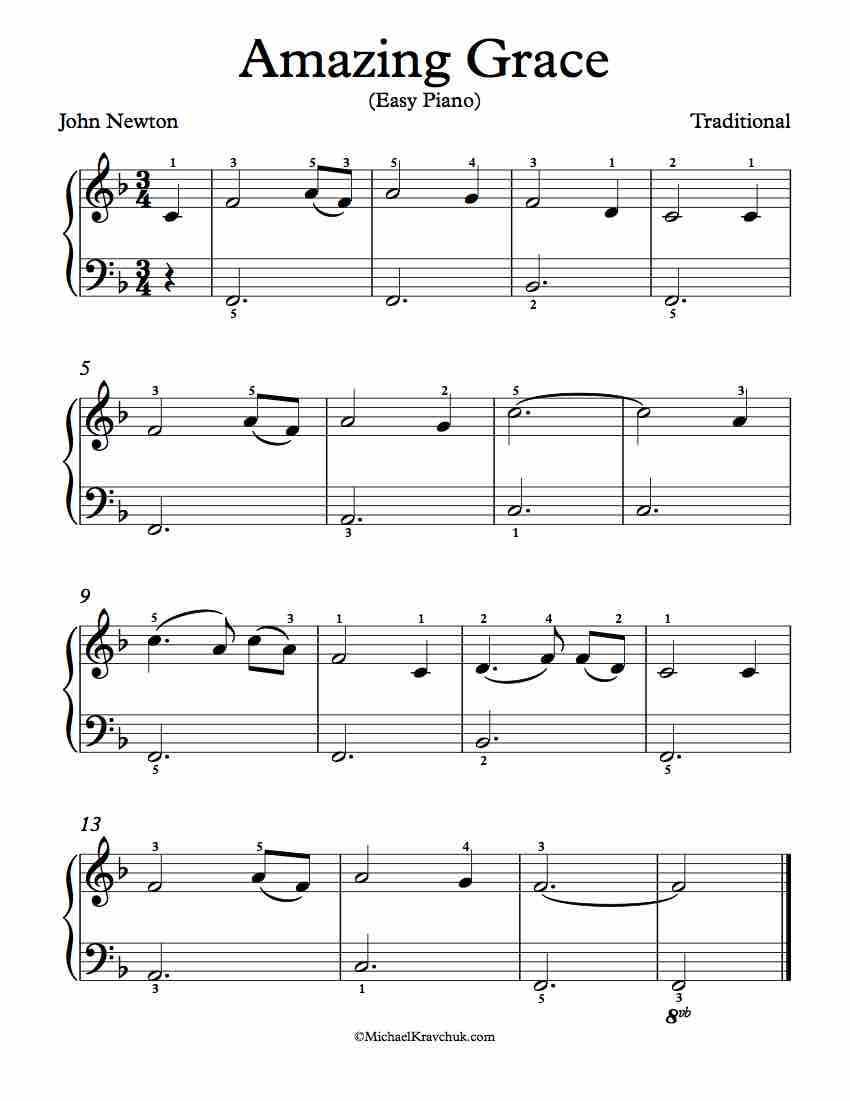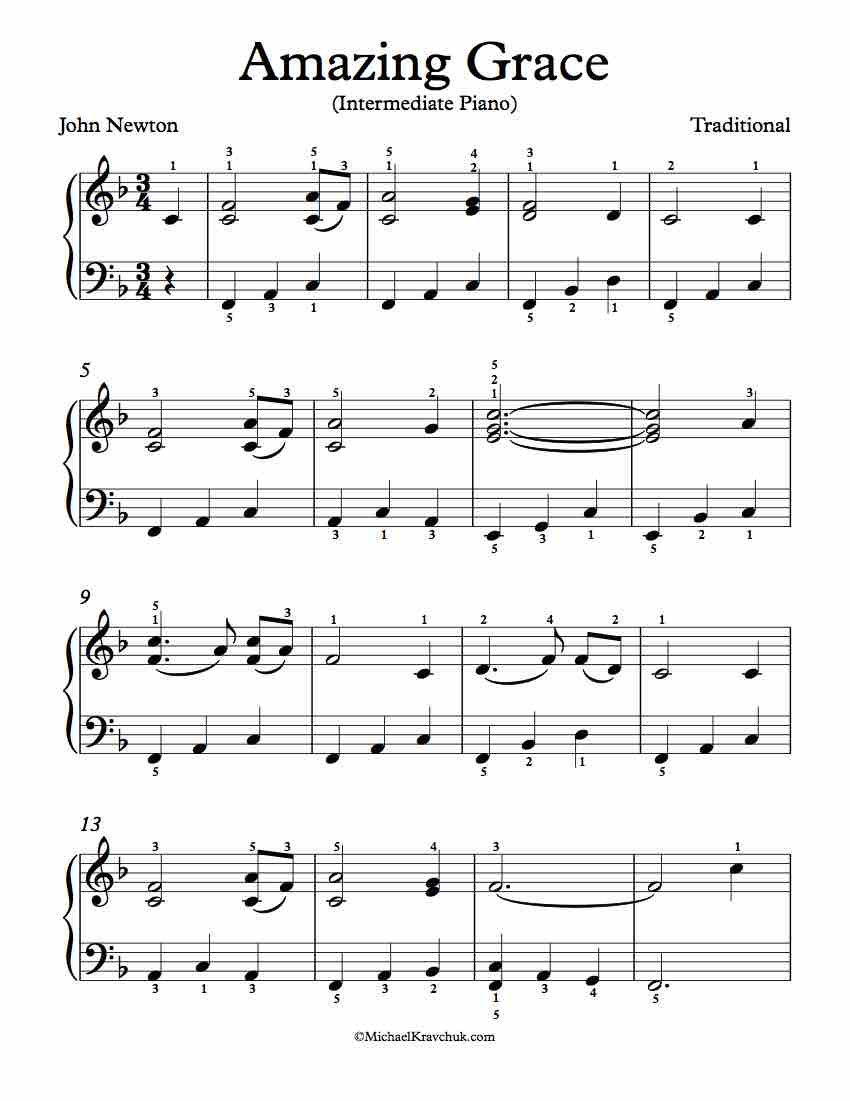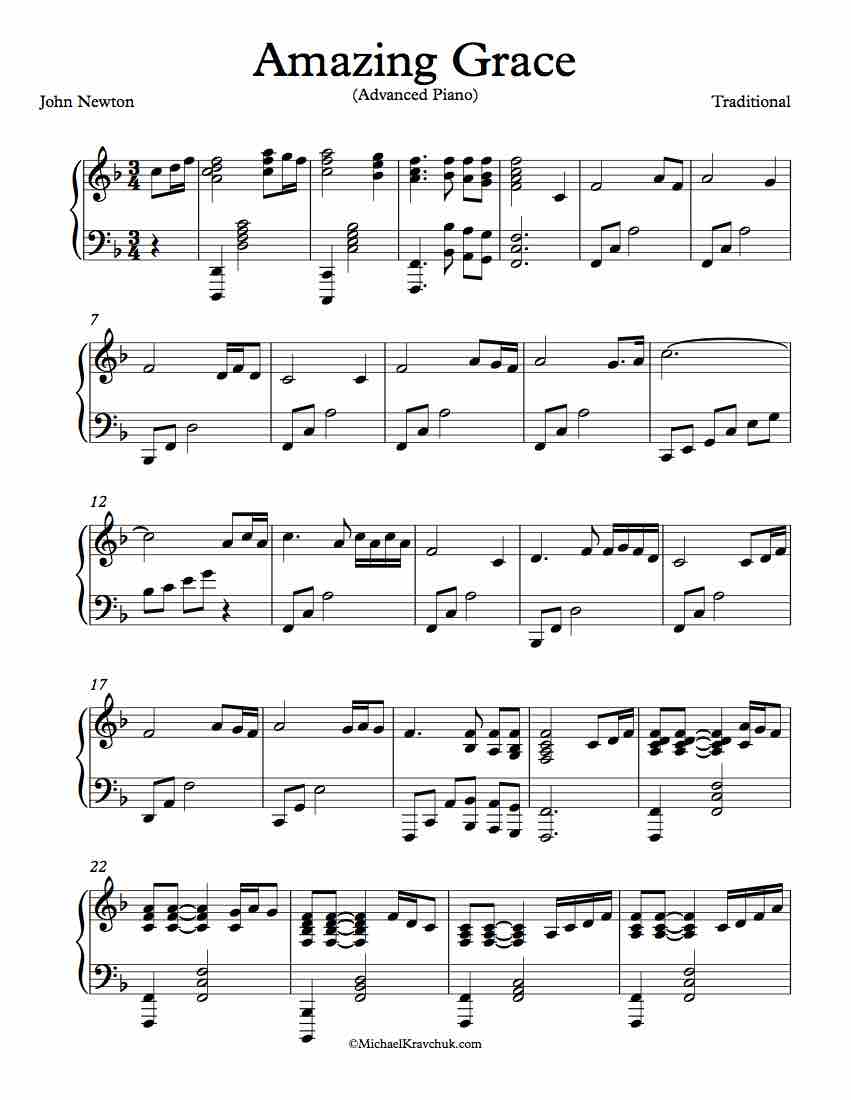Free Piano Arrangement Sheet Music – Amazing Grace
This Post Is No Longer Being Updated
Hello. I have been migrating all my free sheet music to a new website called RoadToVirtuosity.com. Click the link below to go to the latest version of this Sheet Music. Thanks for understanding. Enjoy!!
https://roadtovirtuosity.com/amazing-grace-advanced-piano-arrangement
[adinserter block="2"]
[adinserter block="1"]
Amazing Grace, How Sweet The Sound
I had a lot of fun writing these arrangements. It was so satisfying. I think Amazing Grace must be one of the most popular songs of all time. Its been around since the 1700s. When I was looking at which songs I should work on to arrange, Amazing Grace popped up right away.
Amazing Grace was written in 1772 by John Newton (1725-1807), an English poet and Anglican clergyman. There were more than 20 melodies created for the hymn but the most known tune used today was composed by William Walker in 1835.
John Newton did not grow up religious. His personal experience and suffering were the basis of the very words he scribbled on the hymn. Newton was born in Wapping, London in the year 1725. His father was brought up as a Catholic while his mother was Independent and not attached with the Anglican Church. Her mother died of tuberculosis when he was six years old. His father was a merchant on ships and when he was eleven, he became an apprentice of his father, but it was said that Newton wasn't very obedient during his career. He once denounced his faith when one of his shipmates discussed to him a book called “Characteristics of Men, Manners, Opinions, Times” by Third Earl of Shaftesbury. He was pressed into the navy because of his disobedience but he deserted it because he fell in love with his family friend, Mary “Polly” Catlett. He was traded as a crew to a slave ship because of his abandonment. In the slave ship, he was imprisoned, chained and almost starved to death because of creating obscene poems and songs about his captain. He later became a slave on a plantation in Sierra Leone and was found by another ship called Greyhound. A violent storm came upon the ship in March 1748, and it was when Newton, for the first time since he disregarded his faith and denounced God as a myth, that he called upon the Lord. It was the moment when he considered God’s power and mercy to take control of their life. He called, “If this will not do, then Lord have mercy upon us!”
[adinserter block="1"]



